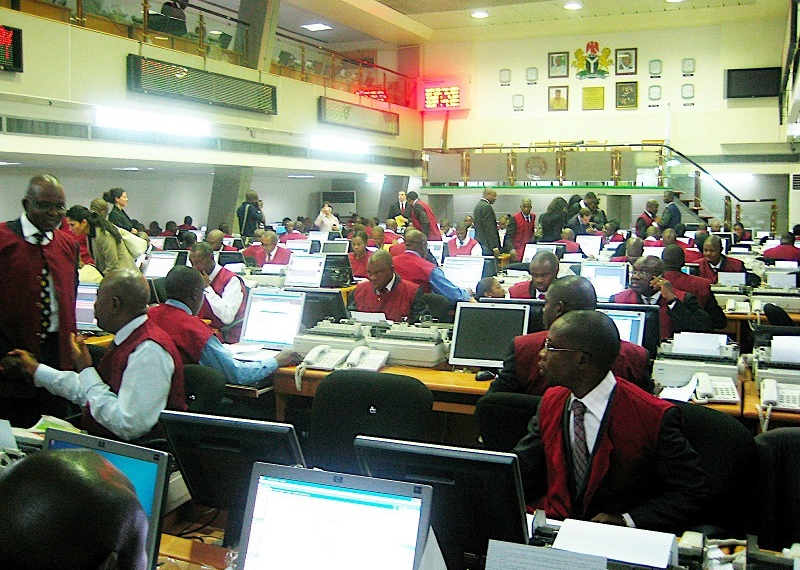The five-week bullish run came to a halt this week, as investors took profits off dividend-paying stocks. Precisely, the local bourse recorded losses in three of the five trading sessions of the week, following profit-taking in the shares of OKOMUOIL (-10.0%), BUAFOODS (-4.0%), GTCO (-3.4%), SEPLAT (-2.3%) and MTNN (-1.2%). Consequently, the All-Share Index shed 0.2% w/w to close at 47,202.30 points.
February 11, 2022/Cordros Report
Global economy
According to the Bureau of Labor Statistics (BLS), headline inflation rose by 50bps to 7.5% y/y in January 2022 (December 2021: +7.0% y/y) – the highest since February 1982 (+7.6% y/y). Notably, the inflation print represents the eleventh consecutive month that the headline inflation has surpassed the Fed’s 2.0% target. The persistent inflationary pressure reflects the combined impact of robust consumer demand with pandemic-induced supply constraints and labour shortages amidst the previous year’s low base effect. Accordingly, pressures were most significant in the prices of food (7.0% y/y vs December 2021: 6.5% y/y), shelter (4.4% y/y vs December 2021: 4.1% y/y), and energy (27.0% y/y vs December 2021: 29.3% y/y). On a month-on-month basis, the headline inflation rose by 0.6% (December 2021: 0.6% m/m). The inflation reading reinforces our view that some previously determined transitory price pressures may be here to stay for some time. This, in conjunction with the improving job numbers, could compel the Fed to hike the key policy rate at its next Monetary Policy meeting in March.
Economic activities in the United Kingdom (UK) improved, albeit marginally, in the last quarter of 2021FY in line with the increased COVID-19 testing and extended vaccination programme during the period. According to the Office for National Statistics (ONS), the economy grew by 1.0% q/q in Q4-21 (Q3-21: +1.0% q/q). The growth reflects the increase recorded across the Exports (+4.9% q/q vs Q3-21: -4.7% q/q), Government expenditure (+1.9% q/q vs Q3-21: 0.0% q/q) and Private consumption (+1.1% q/q vs Q3-21: +2.9% q/q). On a year-on-year basis, GDP increased by 6.5% in Q4-21 (Q3-21: 7.0% y/y). Overall, the economy grew by 7.5% y/y in 2021FY (2020FY: -9.4% y/y) – largely reflecting the significant low base from 2020FY when the COVID-19 pandemic and associated lockdowns negatively impacted economic activities. We expect the economy to grow moderately in 2022E after the initial post-COVID boost in 2021FY due to (1) uncertainties relating to new variants of the pandemic, (2) fading impact of monetary and fiscal stimulus, and (3) lingering supply chain constraints.
Global markets
This week, global stocks posted broadly positive performances bolstered by solid earnings releases. However, global equities pared gains later in the week following hotter-than-expected US inflation data, which reignited fears of a more hawkish Fed. Accordingly, US (DJIA: +0.4%; S&P 500: +0.1%) stocks were set for a weekly gain following robust earnings from tech stocks. European markets (STOXX Europe: +2.2%; and FTSE 100: +2.1%) were buoyed by the rebound in tourism stocks amid easing geopolitical tensions between Russia and Ukraine. In Asia, the Japanese Nikkei 225: (+0.9%) was on course to end the week in the green on the back of the positive sentiments on Wall Street. Likewise, the SSE: (+3.0%) closed higher as gains in Chinese property developers and Alibaba Group Holding buoyed sentiments. Emerging markets (MSCI EM: +2.5%) and Frontier (MSCI FM: +1.0%) market stocks mirrored the bullish trend across global stocks consequent upon gains in China (+3.0%) and Kuwait (+0.6%), respectively.
Nigeria
Economy
At the end of the Bankers’ Committee meeting held on Thursday, the CBN Governor announced a new scheme to improve dollar supply in the economy. According to the Governor, the scheme “RT200 FX Programme” or “Race to $200 billion in FX Repatriation” aims to attain a goal of USD200.00 billion in FX repatriation from non-oil exports over the next three to five years. In addition, the scheme would rest on five key anchors – (1) non-oil commodities expansion facility, (2) dedicated non-oil export terminal, (3) non-oil FX rebate scheme, (4) value-adding exports facility, and (5) biannual non-oil exports summit. While we laud the CBN’s efforts at improving non-oil exports, we think the USD200.00 billion target is not realistic over the medium term. Indeed, total non-oil exports averaged USD5.17 billion annually between 2016FY and 2020FY. Furthermore, we think the presence of structural bottlenecks and administrative challenges at the ports will continue to undermine the competitiveness of Nigeria’s non-oil exports in the global market.
During the Q&A segment of the meeting, the CBN Governor stated that the Deposit Money Banks (DMBs) would be required to generate foreign exchange from the export proceeds of their customers in a bid to eliminate their reliance on the CBN for dollars. Accordingly, the Governor stated that the apex bank would halt the sale of FX to DMBs before or by the end of this year. Furthermore, he stated that the commercial banks should start funding their exporters’ operations. And when the exporters repatriate their export proceeds, they earn rebates (like the Naira4Dollar Scheme) while the banks use the export proceeds to fund their customers’ import obligations. We believe this development is akin to the pre-crude oil era, where commercial banks did not depend on FX from NNPC or the CBN to fund their customers’ import obligations. However, given that the ongoing initiatives to boost non-oil exports are unlikely to yield material results in the near term, we expect the exchange rate to be pressured if the directive takes full effect by year-end.
Capital markets
Equities
The five-week bullish run came to a halt this week, as investors took profits off dividend-paying stocks. Precisely, the local bourse recorded losses in three of the five trading sessions of the week, following profit-taking in the shares of OKOMUOIL (-10.0%), BUAFOODS (-4.0%), GTCO (-3.4%), SEPLAT (-2.3%) and MTNN (-1.2%). Consequently, the All-Share Index shed 0.2% w/w to close at 47,202.30 points. Accordingly, the MTD and YTD returns moderated to +1.2% and +10.5%, respectively. Activity levels were mixed as volume traded declined by 25.4% w/w while value traded rose by 15.4% w/w. Performance across sectors was broadly positive, as the Banking (+2.3%), Insurance (+1.5%), Consumer Goods (+1.3%), Oil and Gas (+0.3%), and Industrial Goods (+0.1%) indices all closed in green.
In the coming week, we expect investors to take advantage of the moderation in the share prices to make a re-entry in dividend-paying stocks ahead of subsequent 2021FY earnings releases. However, we believe investors will remain reluctant to leave gains in the market. As such, we expect intermittent profit-taking to continue due to uncertainties about the direction of yields in the FI market. Notwithstanding, we advise investors to take positions in only fundamentally justified stocks as the unimpressive macro story remains a significant headwind for corporate earnings.
Money market and fixed income
Money Market
The overnight (OVN) rate declined by 925bps w/w to 4.0%, as inflows from maturing FX swap contracts and OMO bills (NGN139.14 billion) outweighed funding pressures for net NTB issuances (NGN116.95 billion) and CBN’s weekly OMO (NGN80.00 billion) and FX auctions.
In the coming week, we envisage the OVN rate would trend northwards as expected debits for CRR, FGN bond and CBN’s weekly auctions are likely to outweigh the sole expected inflow from OMO maturities (NGN140.00 billion).
Treasury Bills
The Treasury bills secondary market ended the trading week on a bullish note, following (1) the improved system liquidity supporting demand, (2) moderations in the 1-year paper stop rate at Wednesday’s NTB PMA and (3) market participants’ movement to the secondary market in a bid to fill lost auction bids. Consequently, the average yield across all instruments contracted by 10bps to 4.6%. Across the market segments, the average yield at the NTB segment settled lower by 4bps to 4.3%. At the NTB auction, the CBN offered NGN98.01 billion for sale with a total subscription of NGN446.31 billion. Accordingly, the CBN allotted NGN1.91 billion of the 91-day, NGN1.82 billion of the 182-day, and NGN211.23 billion of the 364-day bills – at respective stop rates of 2.48%, (unchanged), 3.30% (unchanged), and 5.20% (previously 5.40%). Elsewhere, the average yield at the OMO segment expanded by 16bps to 5.6%. The CBN also offered and allotted NGN80.00 billion worth of OMO bills to participants and maintained stop rates across the three tenures, as with prior auctions.
We expect yields to trend marginally higher in the coming week as we expect a shortfall in system liquidity.
Bonds
Trading in the Treasury bonds secondary market continued with mixed sentiments, albeit with a bullish tilt, following the persistently lower demand as investors remain on the sidelines awaiting further clarity on the direction of fixed income yields. Consequently, the average yield pared by 3bps to 11.6%. Across the benchmark curve, the average yield declined at the short (-17bps) and long (-2bps) ends following demand for the MAR-2024 (-44bps) and MAR-2035 (-11bps) bonds, respectively but expanded at the mid (+3bps) segment as investors sold off the FEB-2028 (+22bps) bonds.
Next week, we expect the outcome of the bond auction and release of the January 2022 CPI (Cordros Forecast: 15.47%) to shape market sentiments and the direction of yields. At the auction, the DMO will be offering instruments worth NGN150.00 billion through re-openings of the 12.50% FGN JAN 2026 and 13.00% FGN JAN 2042 bonds. In the medium term, we still expect frontloading of significant borrowings for the year by the FG to result in an uptick in bond yields, as investors demand higher yields in the face of elevated supply.
Foreign Exchange
Nigeria’s FX reserve sustained its decline as the CBN maintained its interventions in the FX market. Specifically, the gross reserves declined by USD108.32 million w/w to USD39.87 billion (10th February 2022). Meanwhile, the naira appreciated by 0.1% w/w to NGN416.00/USD at the I&E window (IEW) but depreciated by 0.9% w/w to NGN576.00/USD at the parallel market. At the IEW, total turnover (as of 10th February 2022) declined by 18.3% WTD to USD484.55 million, with trades consummated within the NGN404.00 – 474.59/USD band. In the Forwards market, the naira rate closed flat at the 1-month (NGN418.6/USD) and 6-month (NGN434.01/USD) and 1-year (NGN448.61/USD) contracts but appreciated at the 3-month (+0.1% to NGN424.26/USD) contract.
In our opinion, the CBN has enough supply to support the FX market over the short term, given inflows from the recently issued Eurobond and the IMF’s SDR. However, foreign inflows are paramount for sustained FX liquidity over the medium term, in line with our expectation that accretion to the reserves will be weak given that crude oil production levels remain quite low. Thus, FPIs which have historically supported supply levels in the IEW (53.8% of FX inflows to the IEW in 2019FY) will be needed to sustain FX liquidity levels. Hence, we think (1) further adjustments in the NGN/USD peg closer to its fair value and (2) flexibility in the exchange rate would be significant in attracting foreign inflows back to the market.












